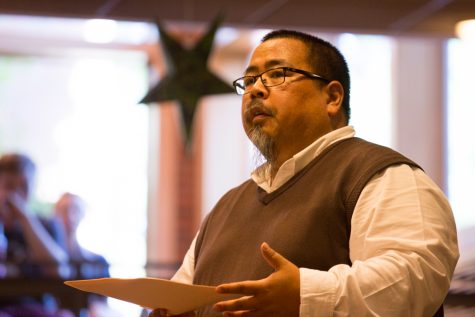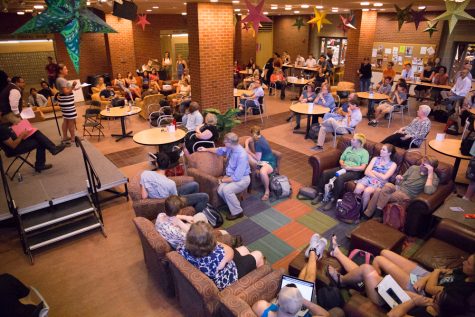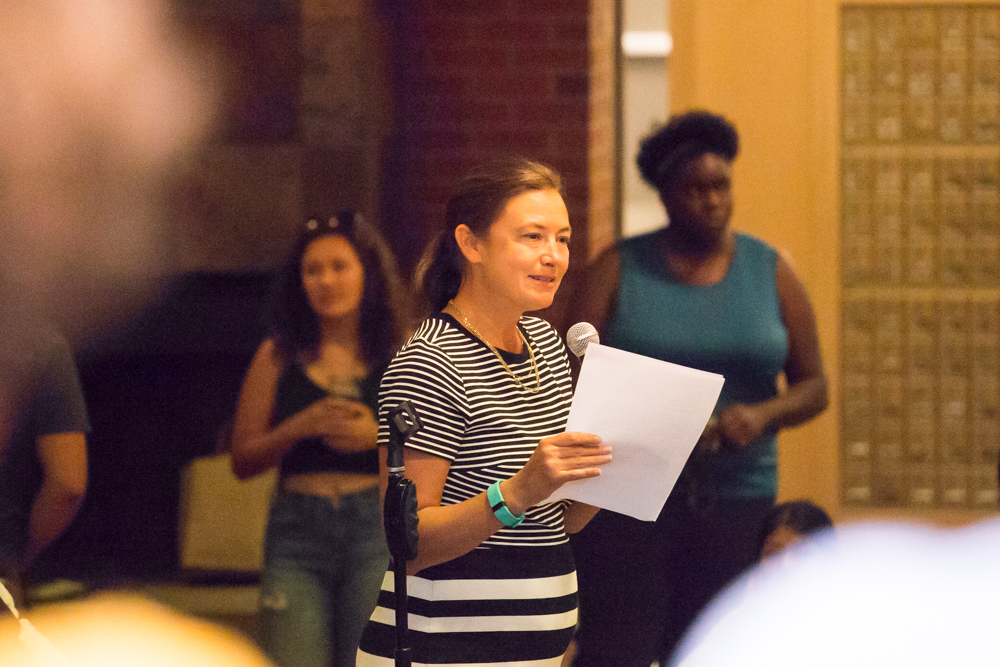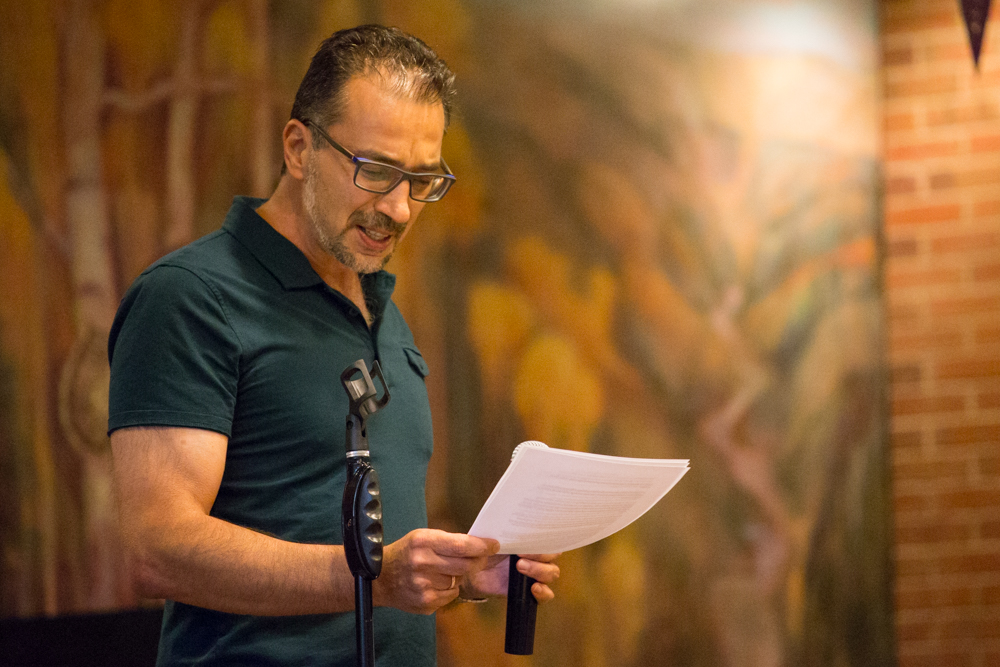Reflections on Charlottesville
September 5, 2017
On August 31, Whitman students, faculty and staff gathered in Reid Coffeehouse to mull over reactions to the white supremacist rally held in Charlottesville, Va.
Daren Mooko, Whitman’s newly appointed Dean of Students, opened the event by summarizing the Charlottesville incident. He was followed by two Whitman professors, Erin Pahlke and Zahi Zalloua, who spoke about how the Charlottesville rally had stemmed from hate. They reiterated the importance of keeping the topic of racism circulating in conversation. Attendees of the event then formed small groups where they discussed their opinions.
“My hope is that the students currently at Whitman will provide the model for how people can disagree, how people can have vastly different ideas and still stay engaged, how people can speak their own truths and not shut down a conversation automatically,” said Mooko, who also helped organize the event.
Funmi Oyekunle, Assistant Director of Student Activities at Whitman College, also attended Reflections on Charlottesville. “Racism is not only about physical violence or physical acts, but [also allowing people to benefit] from a system of power and privilege,” Oyekunle said. “It’s not an easy conversation to have. That’s why we have spaces on campus, like the intercultural center, or why we have the Power and Privilege Symposium every year, so that students have a space where they can unpack those issues of identity development, of privilege and power, and then have some sort of action plan.”
Students also participated in the Charlottesville discussion. Serina Vue, ‘20, said she “wasn’t surprised that it happened. All of that hate has always been there. And especially now that Trump is in a position of power, people with those beliefs are feeling more emboldened to go out and spread hate.” Americans are caught in an increasingly tense political climate under the leadership of an undeniably controversial president. Trump has received heavy backlash for his Charlottesville address in which he said that “very fine people were on both sides.” Tywen Kelly
Tywen Kelly
“I don’t think it’s going to get much better any time soon, because I don’t think Trump is the problem … [white supremacist groups] now feel emboldened and empowered, and that’s where the real problem is. There’s all kinds of things and Trump and his comments are a distraction. The real problem is systemic white supremacy and racism. [Trump’s voice] is just the starting bell,” Mooko said. “I want to believe that there won’t be any more murders and deaths. I want to believe that there won’t be any more torch-lit marches through college campuses. Sadly, I probably won’t be surprised if there are.”
There are things that both students and staff can do to contribute to a better, less hateful atmosphere. “It begins with looking at our community … we need to come together. Being at Whitman means recognizing that racism and bigotry are not tolerated on our campus,” Funmi says. She emphasizes the importance of coming together as a community at Whitman College. “What we need to do as staff and faculty is support and validate students’ concerns.”







